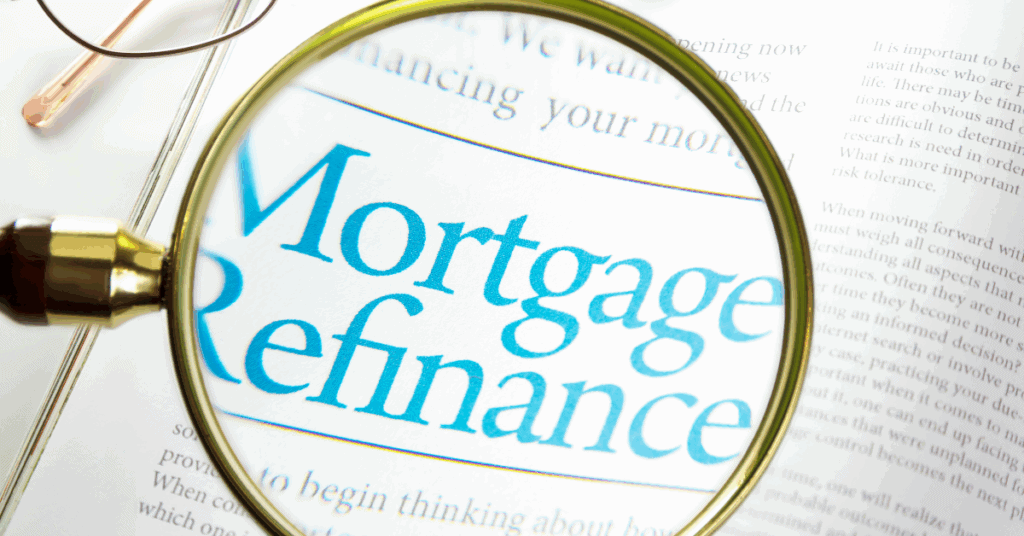Benefits:
- Lending in MI, OH, TN, FL, CO, MN, & PA
- Quick responses, so you’re never left waiting.
- Loan Options designed to fit your financial goals.
- Simple Application Process with Clear Communication
- Over 7,000 Five Star Reviews
It makes sense that any homeowner who hasn’t paid their mortgage might consider refinancing. After all, refinancing could be a way to save thousands of dollars in mortgage payments—if the timing is right. But when is the timing right? When should you refinance a mortgage?
Refinancing allows you to adjust your loan terms, reduce interest rates, or tap into your valuable home equity for various financial needs.
Refinancing a mortgage may always be a consideration, but looking at the timing and related costs should be your first step.
Here are the top five signs that indicate you should consider refinancing your mortgage.
Sponsored
This is probably the most common reason homeowners decide to refinance: when interest rates fall substantially below their mortgage rates.
Even a reduction of 1% can significantly impact your monthly payments and the total interest paid over the life of the loan.
Remember that refinancing costs, such as closing fees, should be factored into your decision to ensure the savings outweigh the expenses.
Most homeowners fail to realize how much a higher credit score can lead to better loan terms and lower interest rates.
Refinancing with an improved score can reduce your monthly payments and lower the total cost of borrowing.
Borrowers with credit scores above 740 are often eligible for the most competitive rates.
If your financial habits have improved since you first secured your mortgage—such as paying down debts or consistently making payments on time—it’s worth checking your credit score, especially after overall rates have also dropped.
An improved credit score paired with a rate drop could be a winning combination that can save you a lot of money through refinancing.
If you could put more cash toward your monthly mortgage payment, it would be a wise decision, saving you plenty in the long term.
Conversely, this can also be a good option if you want to save money in the short term by paying less on your monthly mortgage payments immediately.
Refinancing from a standard 30-year loan to a shorter 15-year loan can help you pay off your mortgage in half the time you originally planned.
The great side-effect is that it also reduces the interest you pay over the life of the loan. Fifteen years sooner will likely translate into cash in your pocket.
On the other hand, if your cash flow is tight right now, extending your loan term can lower those monthly payments and make them more manageable.
Important: This option increases the total interest paid over the life of the loan. You’ll save now, but you will pay more in the end.
Home equity is the difference between the market value of your home as it stands today vs the amount you still owe on your mortgage.
Just by paying your mortgage, you’ve been increasing the amount of equity you own.
Renovations that add value or if the local real estate market has improved are other ways to increase your equity.
Through refinancing, you might be able to use that increased equity in a couple of different ways:
If you’ve reached 20% equity in your home, refinancing can help you remove PMI (typically required for a conventional loan with a down payment below 20%).
Eliminating PMI could save you hundreds of dollars per month.
“Cash-out refinancing” means a homeowner can borrow against their home’s equity to fund expenses like home renovations, education, or debt consolidation.
For instance, if your home is worth $420,000 and you owe $220,000, you might refinance and take out $50,000 in cash for a variety of projects. Your loan amount would increase to $270,000.
If you have an ARM, you likely benefited from a lower initial interest rate when you first purchased.
However, once the fixed period of that ARM rate ends, it will be adjusted based on market conditions, potentially increasing your monthly payments.
Refinancing into a fixed rate may provide stability and protect you from rising rates.
Deciding to refinance depends on several factors, including your financial goals, current market conditions, and how long you plan to stay in your home.
However, the biggest step in refinancing is calculating the “break-even point,” when the savings offset the closing costs.
For example, if refinancing saves you $200 per month and your closing costs are $6,000, it will take 30 months to break even. Refinancing could be a good decision if you plan to stay in your home longer than this.
While refinancing has many benefits, it’s not always the best move. Consider the following before making a decision:
Refinancing your mortgage can be a powerful maneuver to improve your financial situation.
Understanding when to refinance is key, whether you’re looking to save money, pay off your mortgage faster, or access your home’s equity.
One of the best ways to decide if now is the right time to refinance is to connect with a lender in your area who can advise you on your options.
Partner with MyPerfectMortgage right now, and we’ll pair you with the right refinancing solution today.
Our advice is based on experience in the mortgage industry and we are dedicated to helping you achieve your goal of owning a home. We may receive compensation from partner banks when you view mortgage rates listed on our website.


